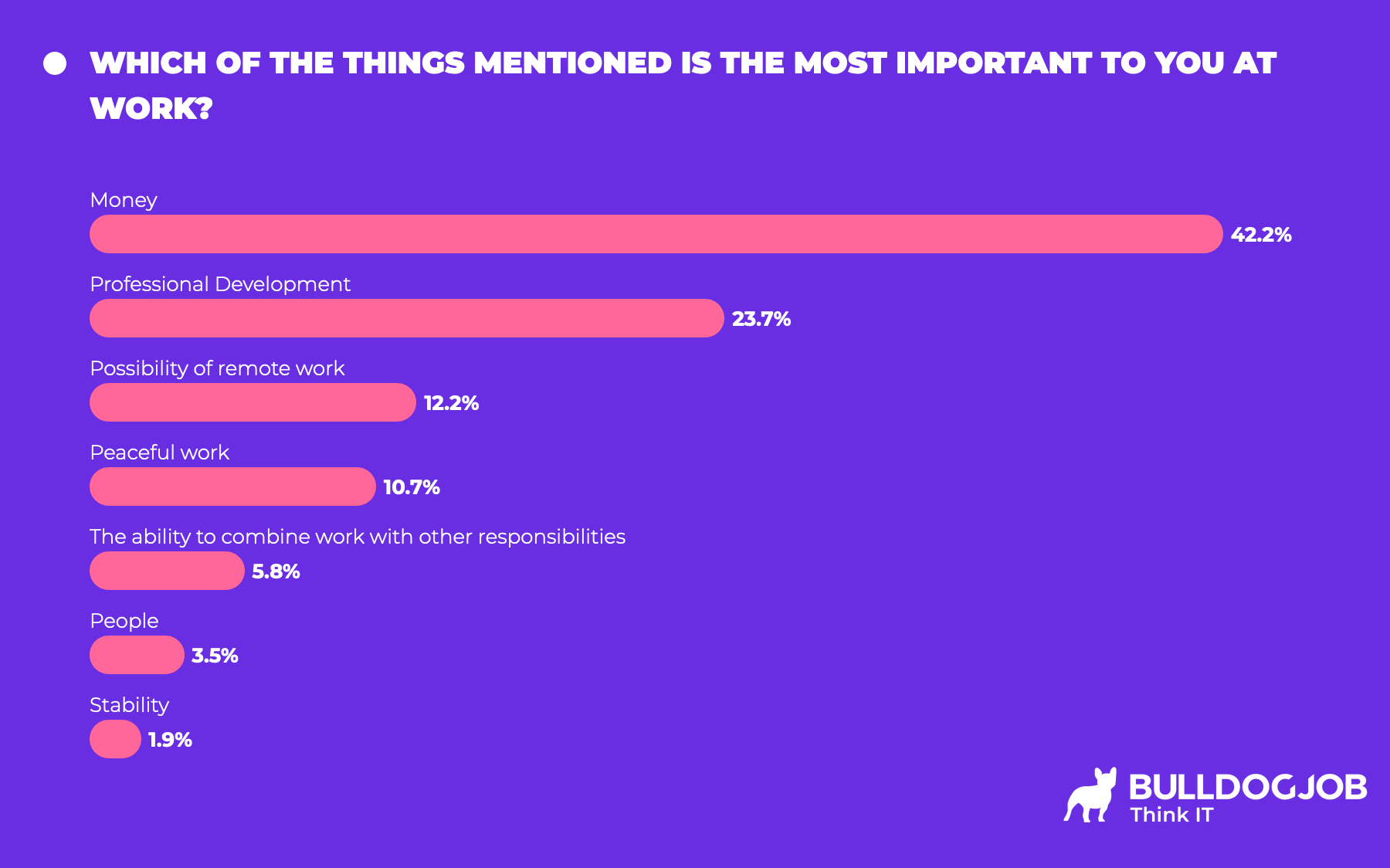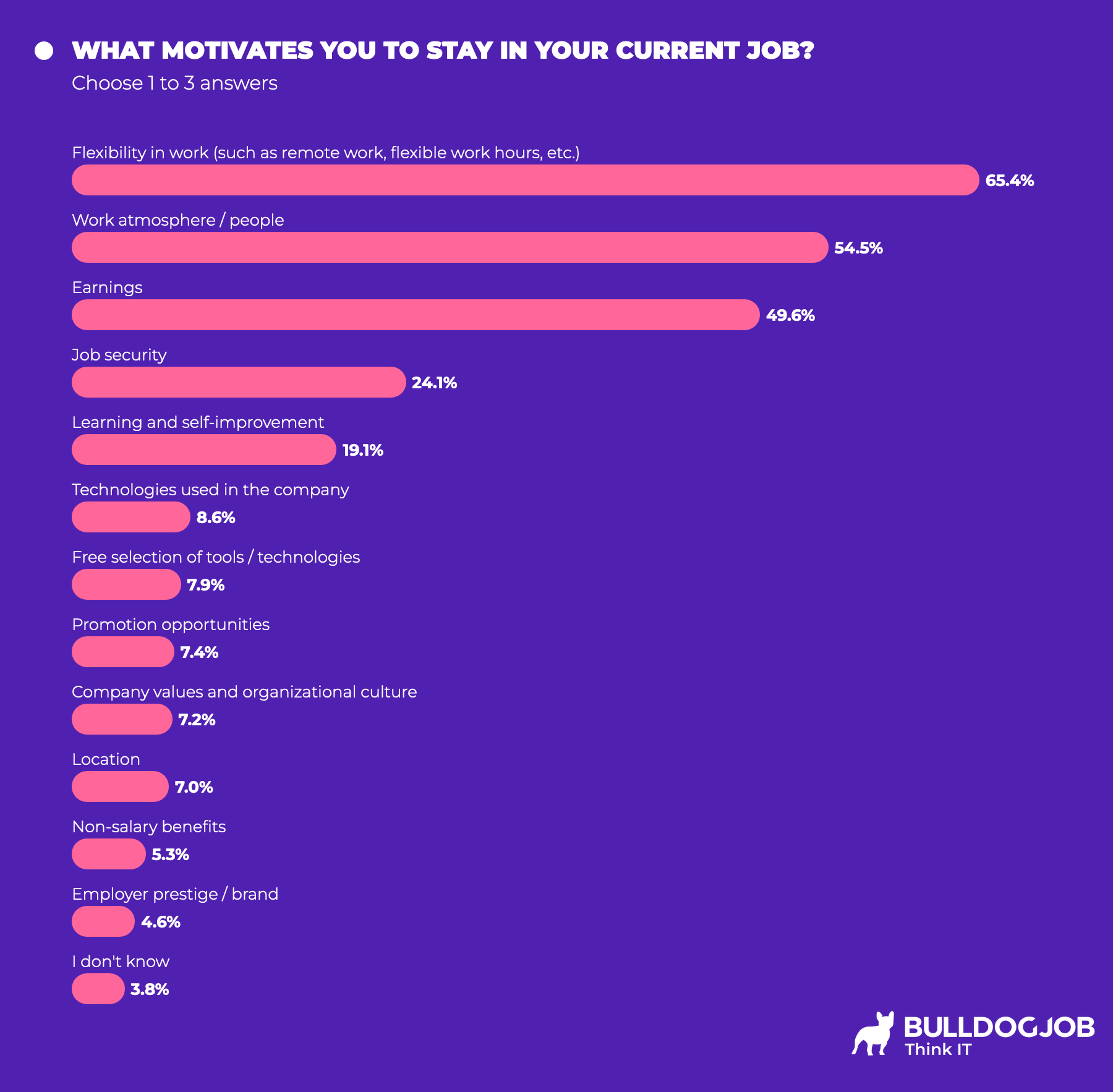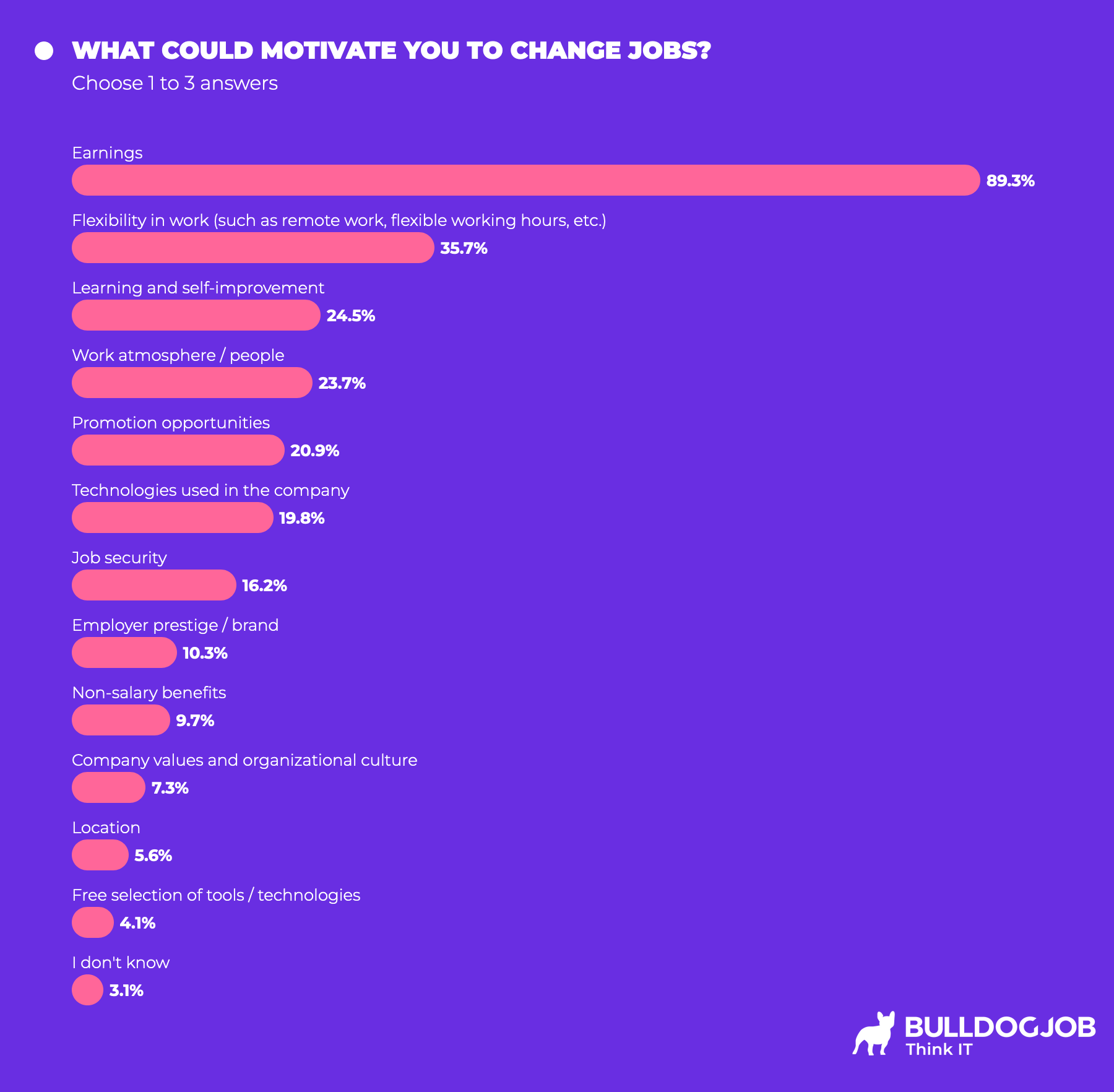What motivates a programmer?

A big paycheck? Exciting projects? Appreciation? No extra hours? Let's explore what motivates developers and what keeps them loyal to their employers. It turns out money isn't everything.
The data presented in this article is from our IT Polish Community Survey 2024. It's sourced from nearly 5000 Polish IT professionals, including software engineers, devops, IT admins, analysts, etc. Even though it’s a local study, we believe it can provide valuable insights for an international audience.
Of course, motivation is highly subjective and often subconscious. There is a lot of psychological research in this area, but we will focus on the data we’ve gathered, as we specifically asked respondents about their motivations.
What is the most important thing at work?
The first question we asked in this survey was about the most important thing at work. Respondents could only choose between predefined responses, and the results were as follows:

Money was chosen as the most important thing at work (42%), followed by professional development (24%), the ability to work remotely (12%), and work being pretty chill (11%). We've been asking the same question for a few years now. Interestingly, a lot more people chose money as the answer this year. This change was unprecedented, but we can probably attribute it to the end of the post-pandemic gold rush observed in the tech industry.
Now, does this mean that money is the only motivation for IT specialists and programmers? Probably not. Given the market situation, most professionals understand that the primary objective of their work is making money (duh...), but motivation is not all about the money, as Alfie Kohn summarized in his article a long time ago.
Motivation to Stay

Here we allowed up to 3 responses. The most popular answer was work flexibility (understood as the ability to work remotely or have a flexible schedule, 65%), then human connection (55%), and then earnings (50%). Other popular answers included job security (24%) and learning opportunities (19%).
So, we can see that money is still an important factor, but freedom from the constraints of a classic 9-to-5 seems to be more important for many. Work atmosphere and people are also important factors when it comes to motivation to continue to work in the same place.
Motivation to Change Jobs

Here, the methodology was similar, but this time it’s no contest. Money as a motivation factor wins by a landslide (89%), then flexibility (35%), learning (25%), work atmosphere (24%), promotion opportunities (20%), and tech stack (20%).
Motivation in Day-to-Day Work
Although our data does not directly answer the question of motivation, we can speculate a bit about the most important factors:
Money
Often underrated in discussions about work motivation, money remains a significant factor. Even though many sources state that money is not a strong motivator, it is demotivating if one feels they are not compensated fairly.
Flexibility
This is more about integrating work into one's life in a more productive way. Long commutes, being overworked, and tired can affect motivation massively. That’s why many IT professionals that took part in our survey appreciated flexible work schedules and remote work.
Professional Development and Learning
Answers from the job-changing motivation question indicate that learning to become a better expert is an important part of their careers. Learning new things can be an important motivation factor, especially for less experienced professionals. On the other hand being stuck for too long in the same position, with the same set of problems and ancient stack would be a demotivating factor for most.
People
Work atmosphere and team spirit are important for motivation. This is especially true for development teams that share a common goal. If they support each other along the way, it boosts the motivation of everyone involved. That's why this is a strong motivator for staying with the same company.
Autonomy
Although we haven't mentioned autonomy so far, it's an important factor, based on our experience. We've found that IT professionals who are decision-makers generally have higher satisfaction levels than others, even in the face of significant challenges.
We presented some of the most popular factors motivating IT professionals, but there are many more, like providing adequate tools or carefully planning work. A well-motivated software engineer or any IT specialist for that matter will gladly show up at work because it will give them enjoyment and satisfaction. Confucius (allegedly) once said: "Choose a job you love, and you won't have to work another day in your life." That's what we wish for everyone, even if it's a bit too idyllic.
